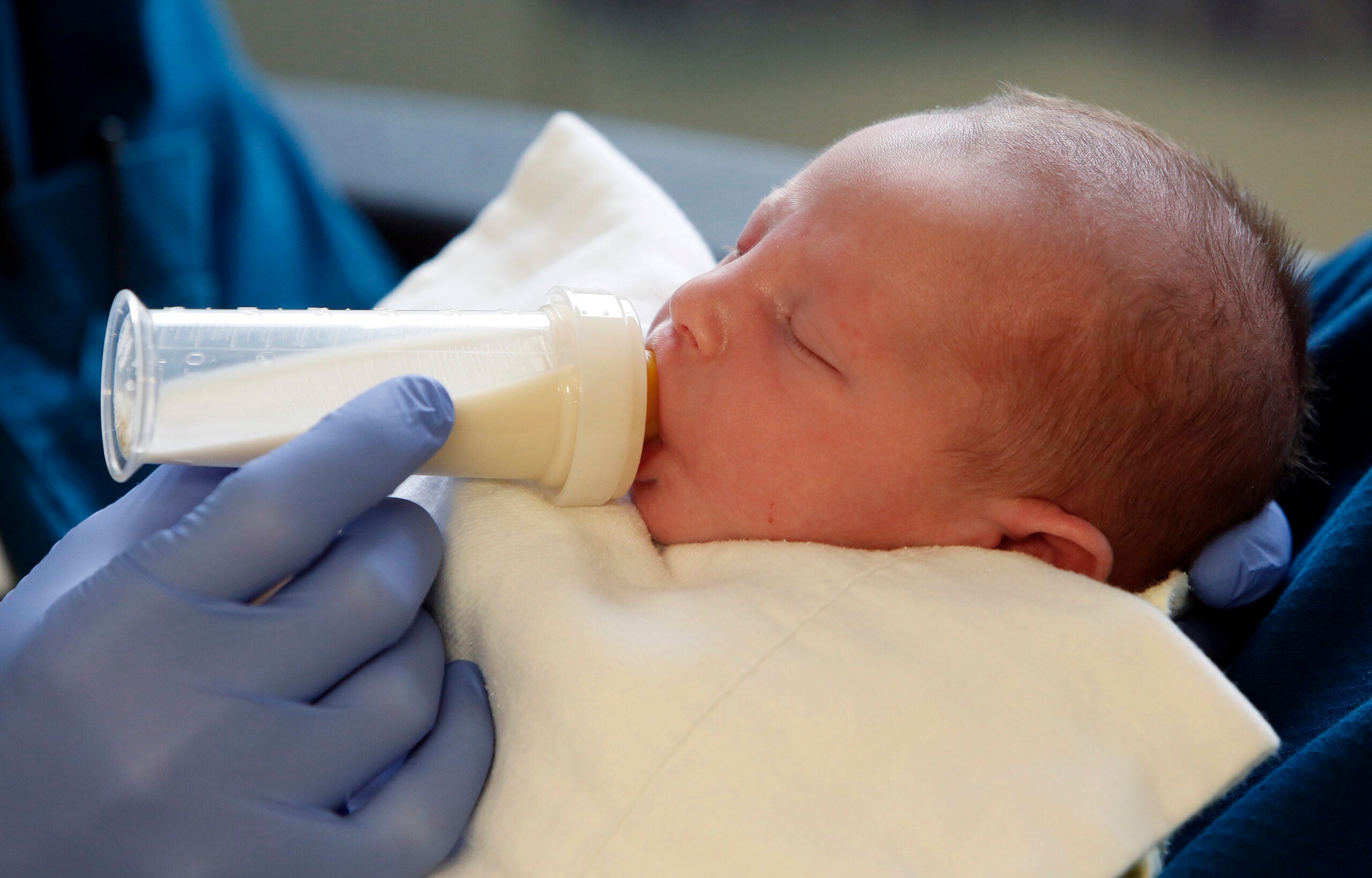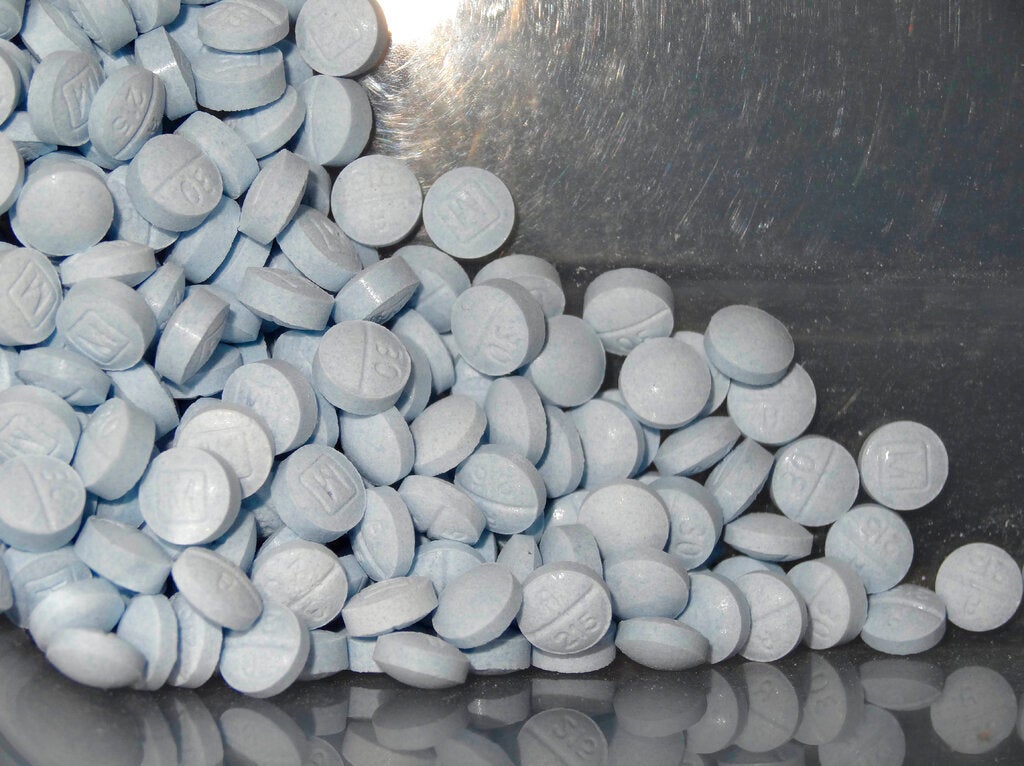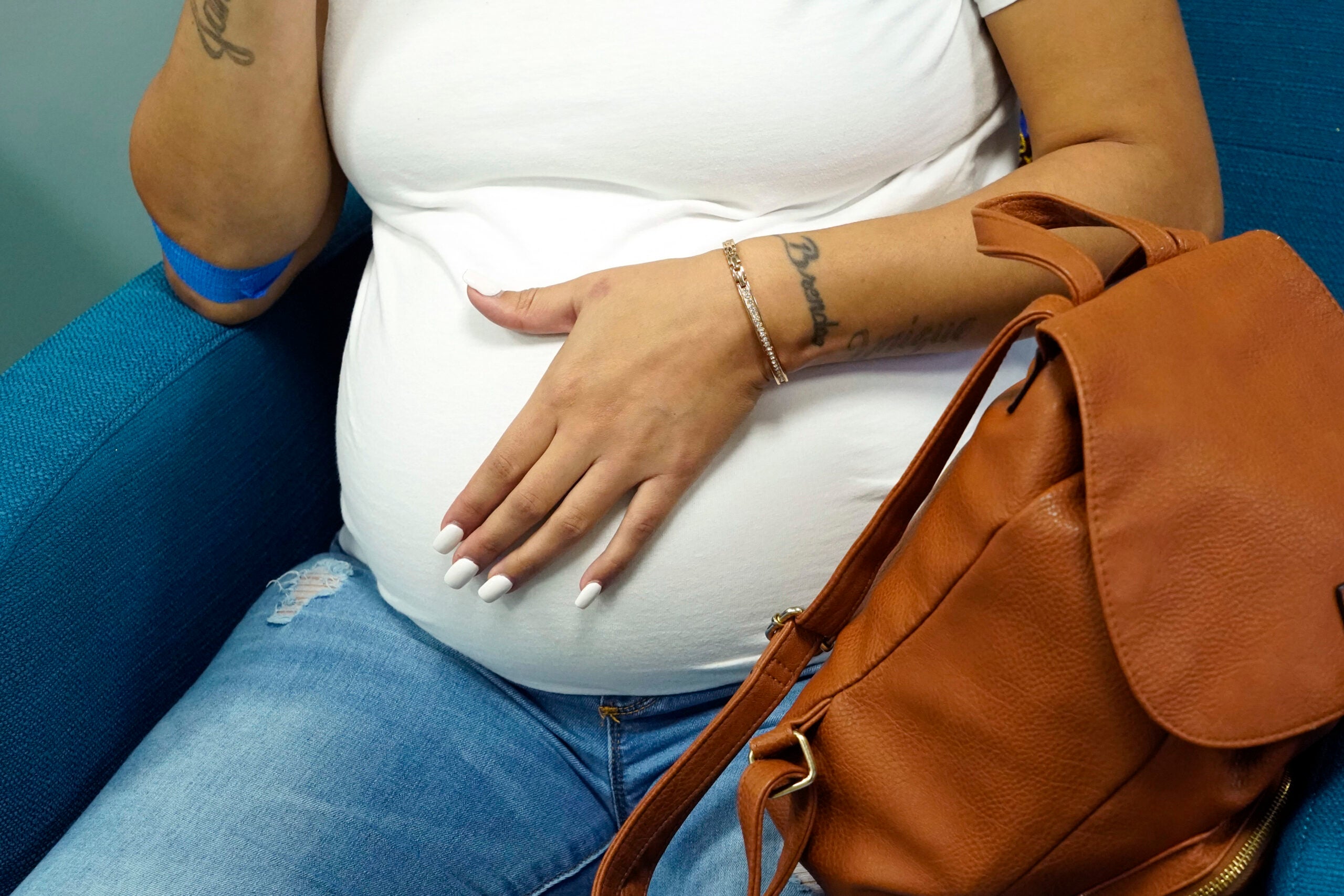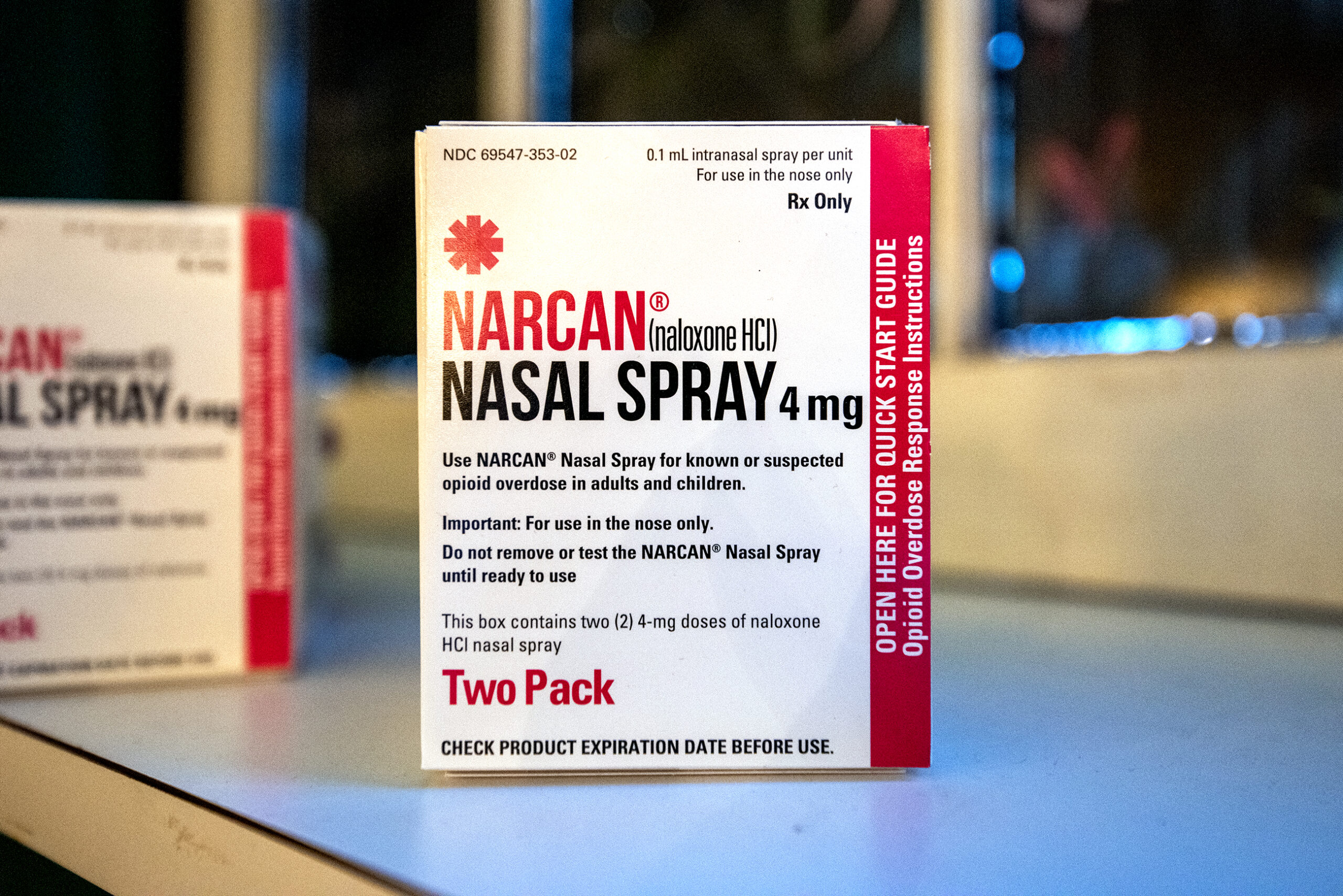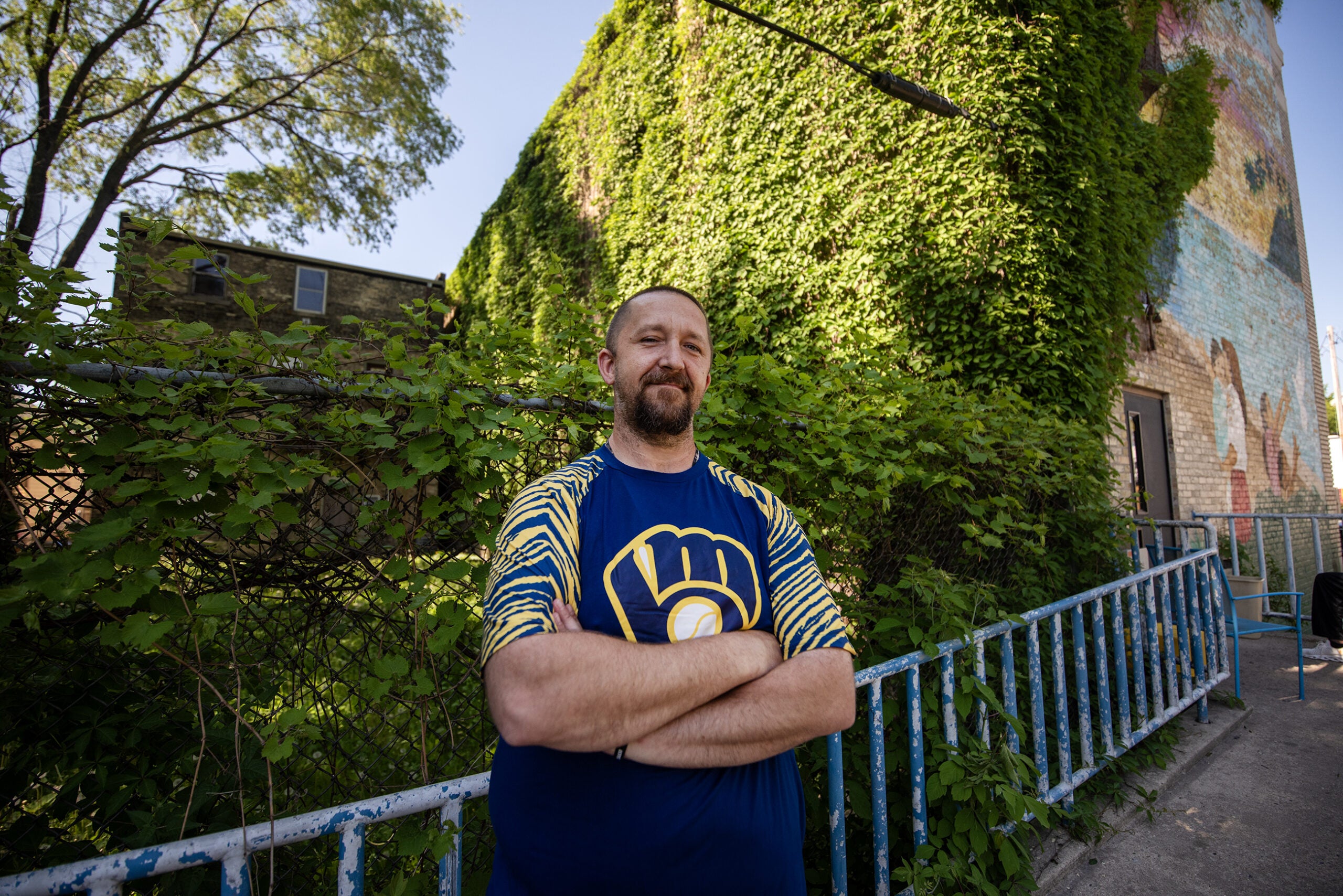Dr. Charles Schauberger happened into an unexpected end-of-career specialty when he took over a high-risk obstetric clinic at Gundersen Health System more than five years ago.
The patients included a few expectant mothers addicted to opioids. He now treats 20 to 25 expectant mothers addicted to opioids at any given time and has had more than 170 addiction patients.
The number of Wisconsin newborns needing treatment for opioid withdrawal quadrupled over the last decade to nearly 600 a year in 2015, according to Wisconsin Department of Health Services data.
Stay informed on the latest news
Sign up for WPR’s email newsletter.
But Schauberger believes the need for clinics like his is likely even greater than the numbers indicate because he knows many mothers addicted to opioids try to deliver at hospitals where they aren’t recognized.
“They think they can keep their secret as to the fact that they’re using opioids and they probably get out of the hospital before the baby develops symptoms,” he said, sitting in one of his clinic’s exam rooms earlier this year.
The idea behind the care Schauberger and his staff provide is to keep mothers in the health system, and make sure they and their newborns get the care they need through and following birth.
Most of his patients with substance abuse get pregnant while taking medications such as methadone or buprenorphine to treat their addictions. While the medications can block the cravings and highs from opioids for those taking them, they can result in withdrawal for infants exposed to the drugs during pregnancy.
“About a third are people who have been using who accidentally got pregnant,” Schauberger said of his patients. “Not only are they learning about pregnancy care and learning about being pregnant, but (are) new to addiction care. It’s a very challenging situation.”
Some patients are referred from treatment programs. Others come by word of mouth, a testament to the trust the clinic staff build with patients who are often leery of doctors and other service providers.
“I try to help them understand that I am not judging them,” said Jean Colburn, one of the clinic’s coordinating nurses. “This is a disease, if they were being treated for diabetes, if they were bring treated for cancer, if they were being treated for any other condition, we would do whatever we can. And we’re going to do whatever we can to help them with substance abuse.”
Mothers struggling with addiction have more frequent appointments and ultrasounds during pregnancy. Colburn and the clinic’s dedicated social worker also help fill other needs — they connect patients with transportation and housing, or help them sign up for food and medical assistance.
Colburn said that can turn her into something of a “stalker,” calling patients again and again until they pick up the phone. She makes flexible appointments for reluctant patients, making sure they can see someone if they come in at any time on a given day.
It takes a delicate balance to get patients to believe their goal is to keeps moms and babies together. Especially when it comes to something like regular drug screening, Schauberger tells patients he isn’t trying to “catch them using.”
“I tell them, I want you to establish a pattern of urine drug screens that are clean so we can take it to CPS (Child Protective Services) at the end of the pregnancy and say, ‘See, she’s had six urine drug screens clear of any nonprescribed drugs,’” he said.
Ashley Spears admitted the intensive support was a little overwhelming at first.
“I wasn’t trusting of it,” Spears said, holding her hours-old baby boy in Gundersen’s Labor and Delivery unit.

A patient of Dr. Charles Schauberger’s holds her newborn baby boy at Gundersen Health System in LaCrosse. Kyla Calvert Mason/WPR
But there was a simple reason she stuck with Schauberger and his staff
“I want to keep him,” she said nodding at the baby. “And so I was honest about my addiction, and I wanted help, and I just didn’t know what kind of help I was going to be able to get.”
The staff were able to help her get into a residential treatment program where she and her son can live while she continues treatment.
Five years ago, when Schauberger’s clinic was taking shape, Dr. Nicole Hennessy, said she began to feel they weren’t doing right by Schauberger’s patients.
Hennessy, who runs the Gundersen pediatrics unit that takes over baby care after delivery, wanted the support for moms with addiction to continue through their post-delivery hospital stays.
The biggest change, she said, is that instead of all newborns treated for withdrawal being sent to intensive care, they are staying in the mom’s room. Gundersen is the only hospital in the state to do this.
“So moms are allowed to bond more and they’re also seeing the signs of withdrawal and they’re seeing from the nurses how to calm the baby from withdrawal without the medicine,” Hennessy said.
Unit nurses have also been trained on how best to monitor babies at risk for withdrawal and how to build better relationships with the moms. That has reduced family stress levels, Hennessy said. And if mom is less stressed, so is baby.
They’ve shortened average hospital stays for babies with withdrawal from three weeks to 10 to 14 days, Hennessy said.
At another hospital, with different doctors, nurses and staff, Spears said she believes things would have turned out differently.
“I wouldn’t be holding him, he’d be with somebody else. He’d be in foster care,” Spears said.
Her relationship with Gundersen isn’t ending. Spears’ son will be a patient in a new pediatrics clinic caring for children exposed to drugs.
Editor’s Note: This story is Part 1 of a three-part series exploring how children in Wisconsin are impacted by opioids.
Wisconsin Public Radio, © Copyright 2024, Board of Regents of the University of Wisconsin System and Wisconsin Educational Communications Board.

